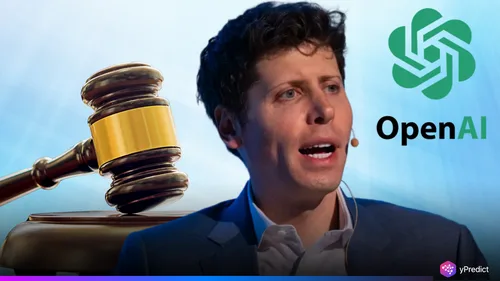
OpenAI CEO Sam Altman has cautioned that many individuals can disclose personal information to ChatGPT, often without understanding the implications. He said, “We think we are having a private conversation with an AI in reality, the chat can become ChatGPT legal evidence, whether we like it or not.” This disclosure has launched a significant public discussion about privacy and the future of privacy in an AI-dominated world.
The problem is beyond simple data storage. It is that, for too many people, they think about AI as a counsellor or best friend, and can forget how much they are disclosing (often about others) that they would not disclose to others. Altman has hit the nail on the head in proving that if it is written down and stored, it will not be private again. If a governmental body request access for the conversation, the chat is now in evidence affecting a legal case. This raises the question of how private were these interactions after this point?
Why ChatGPT Conversations Are Not Fully Private
AI applications like ChatGPT will retrieve and store all user input to develop better predictive, conversational, and communicative capabilities. Companies can indicate these practices are safe, but the truth is the conversations exist in some way and could be discovered if requested by a legal authority. This is where AI privacy concerns become paramount.
There is a common belief that if we close the window/tab, the chats just disappear, but those online, digital traces still exist. For example, courts may consider those conversations to be electronic records similar to an email or text message. This raises issues for personal data protection emerging from digital innovation. These complexities are evolving processes in a digital world where AI is finding its place in our professional and personal lives.
Legal Implications for Everyday Users
The incorporation of ChatGPT legal evidence could change the perspective of courts in utilizing digital information. What started out as a casual conversation about finances, relationships, or work might become part of court documents. This means that users now have to think about what they share, much like traditional sources of evidence, rather than having the option to think about it.
The implications are not only for individuals. Businesses using AI to manage customer support, HR questions, or conduct legal research could be challenged if their conversations are subpoenaed. For organizations, the protection of confidential data now requires stricter compliance policies and internal policies to minimize this risk.
The Privacy vs Innovation Dilemma
Sam Altman points out the struggle between innovation and safety. AI tools like ChatGPT help with answers, ideas, and creativity but also raise serious privacy concerns. If people avoid asking personal questions out of fear of exposure, they lose trust and hesitate to use the technology.
Responsibility sits with both users and companies. Users must understand that typing into an AI chat is like sending an email or posting online. Companies like OpenAI must stay transparent and invest in strong data protection. Only then can society build trust while relying more on AI-powered tools.
What Users Can Do to Stay Safe
The first step in caution for individuals. Don’t enter sensitive information like account numbers, passwords, or confidential work information into the chat. Just like you would treat a chat with AI, you need to treat it like any other digital communication that could be retrieved later.
Businesses need clear policies on AI usage. If employees are trained on the ramifications concerning legal evidence of ChatGPT, they will not leak sensitive company information out into unintended hands. Encryption, secure storage, and regular audits are layers that organizations must use to protect company information.
Moving Toward a Safer AI Future
Sam Altman warns that AI remains in its adolescence, still lacking strong regulatory, legal, ethical, and social frameworks. Policymakers must act quickly and address gaps in regulation as AI adoption accelerates. With clear rules and safeguards, users can enjoy AI’s benefits without feeling constantly exposed to unchecked risks.
The debate is not about whether AI should exist but about how it can operate securely and responsibly. Society must urgently discuss how to protect personal data and user knowledge in the right context. These conversations will create the foundation needed for people to trust and embrace AI in the future.






